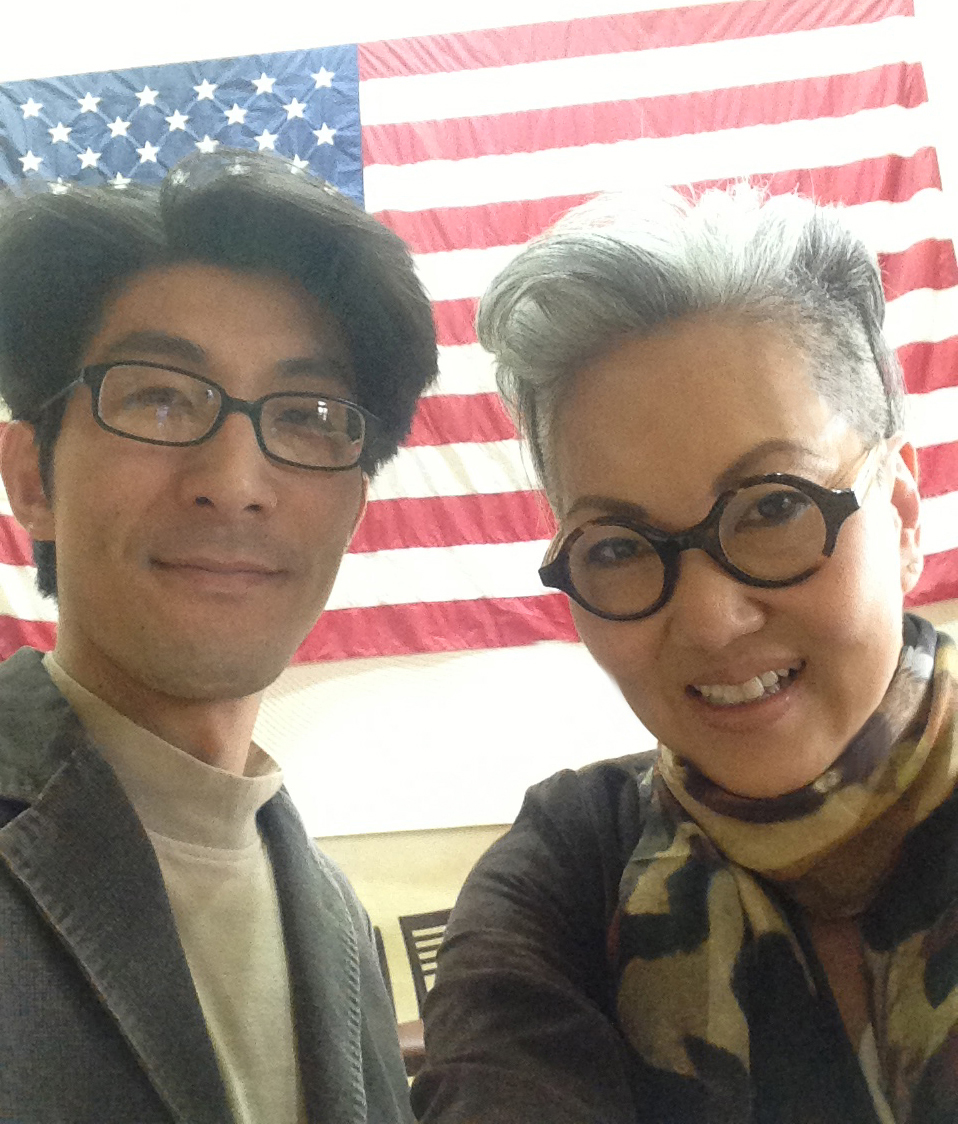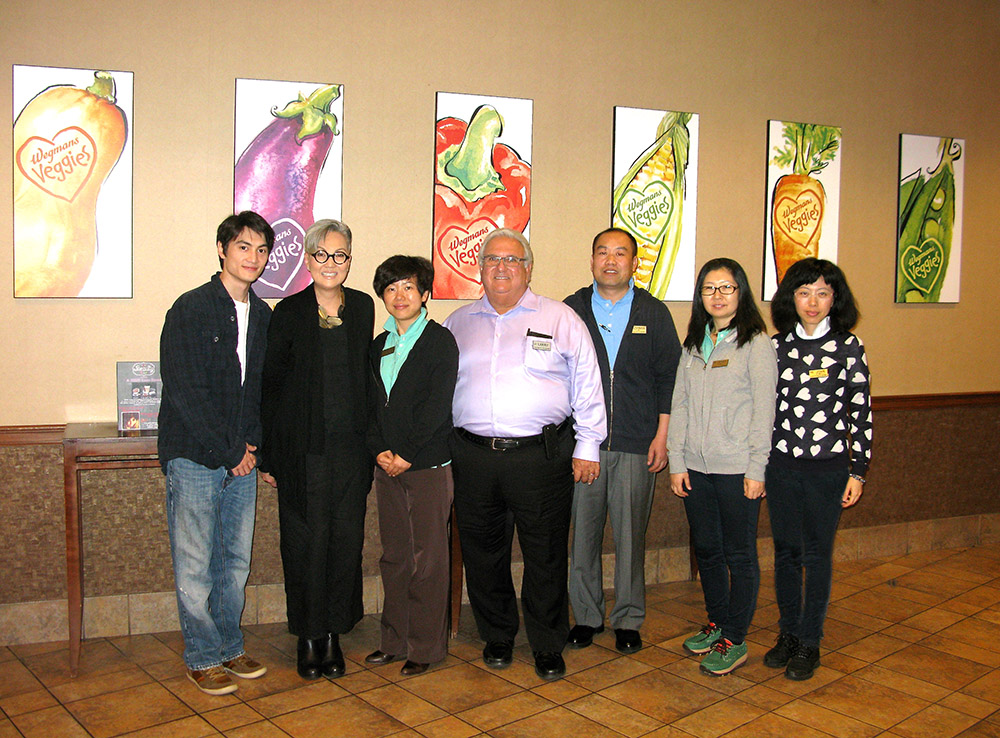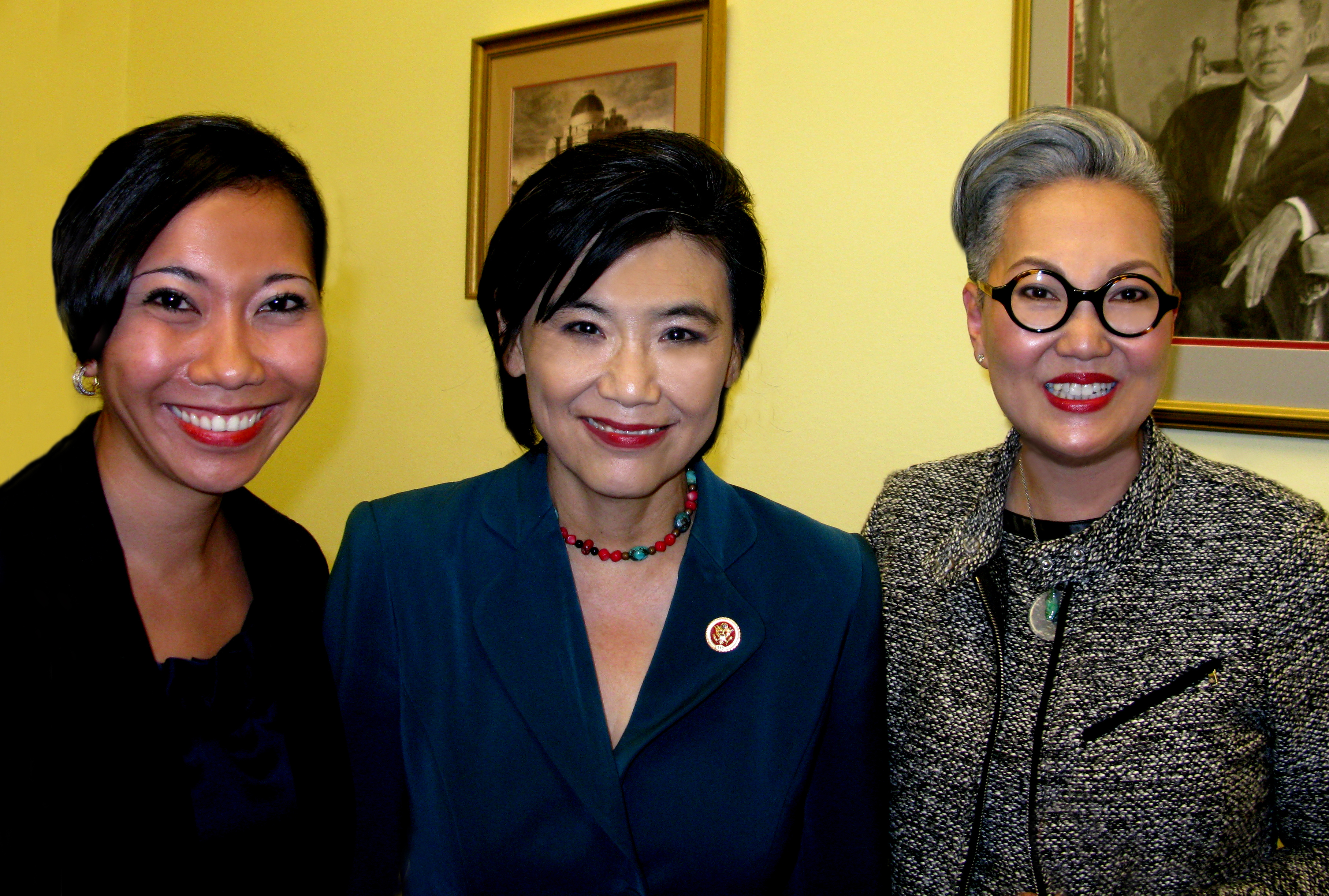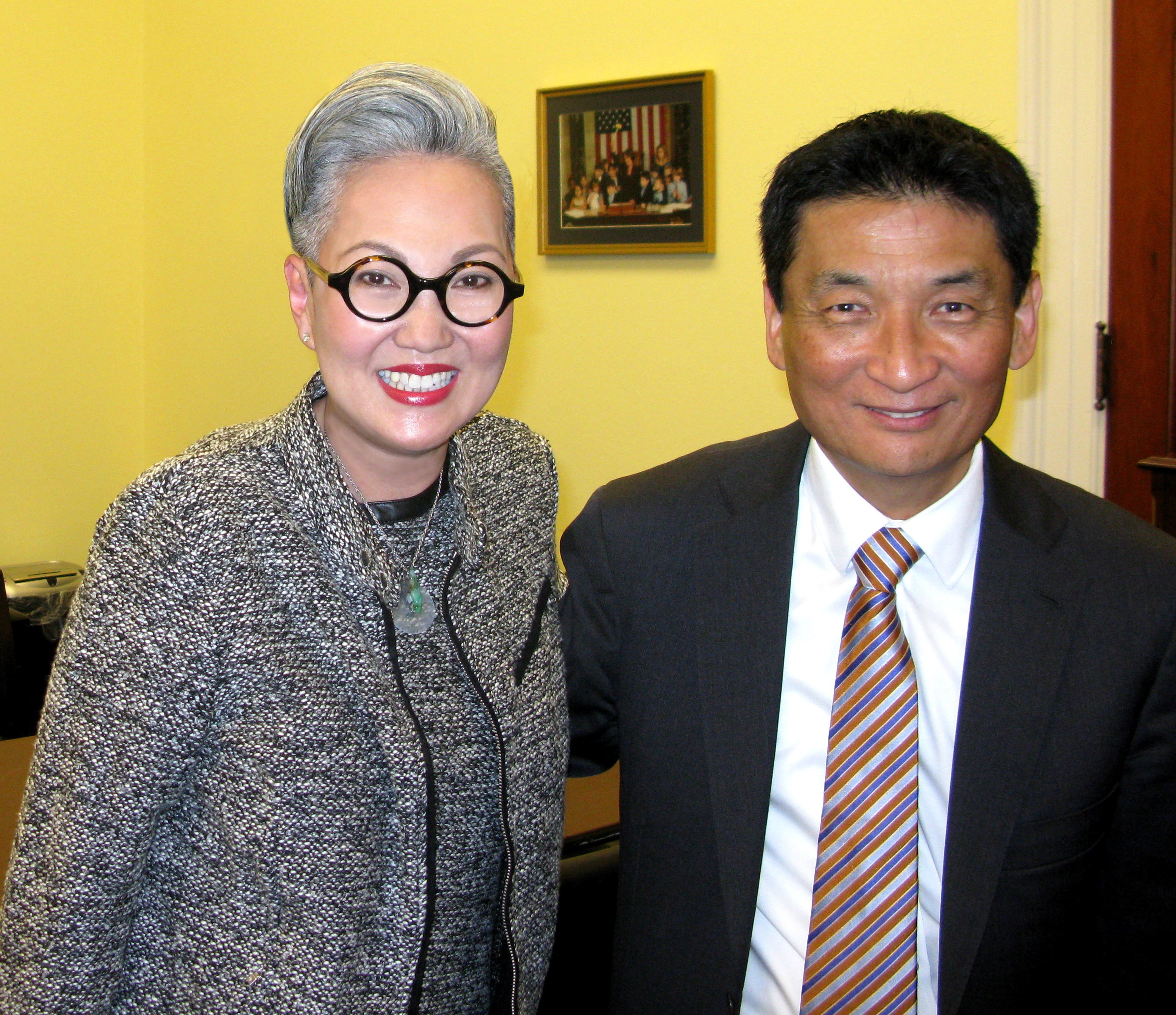
China Millennium Council President Mary Ho and Chinese Ambassador Cui Tiankai Reminisce Earlier Autumnal Visit to Upstate Rochester New York including Pumpkin Highlights at Wegmans Food Markets in Pittsford and the Center for Integrated Manufacturing Studies CIMS at Rochester Institute of Technology
China President Xi Jinping’s newly appointed U.S Ambassador Cui Tiankai conveyed celebratory congratulations for the 40th anniversary of the earliest exchanges between China and the U.S. dating back to 1973, opening doors for long-term investments, advancing partnerships and promoting mutual good will. Notably, Nobel Peace Prize recipient and former U.S. Secretary of State, Dr. Henry Kissinger and U.S Trade Representative Ambassador Carla Hills shared their intriguing perspectives and modern insights.
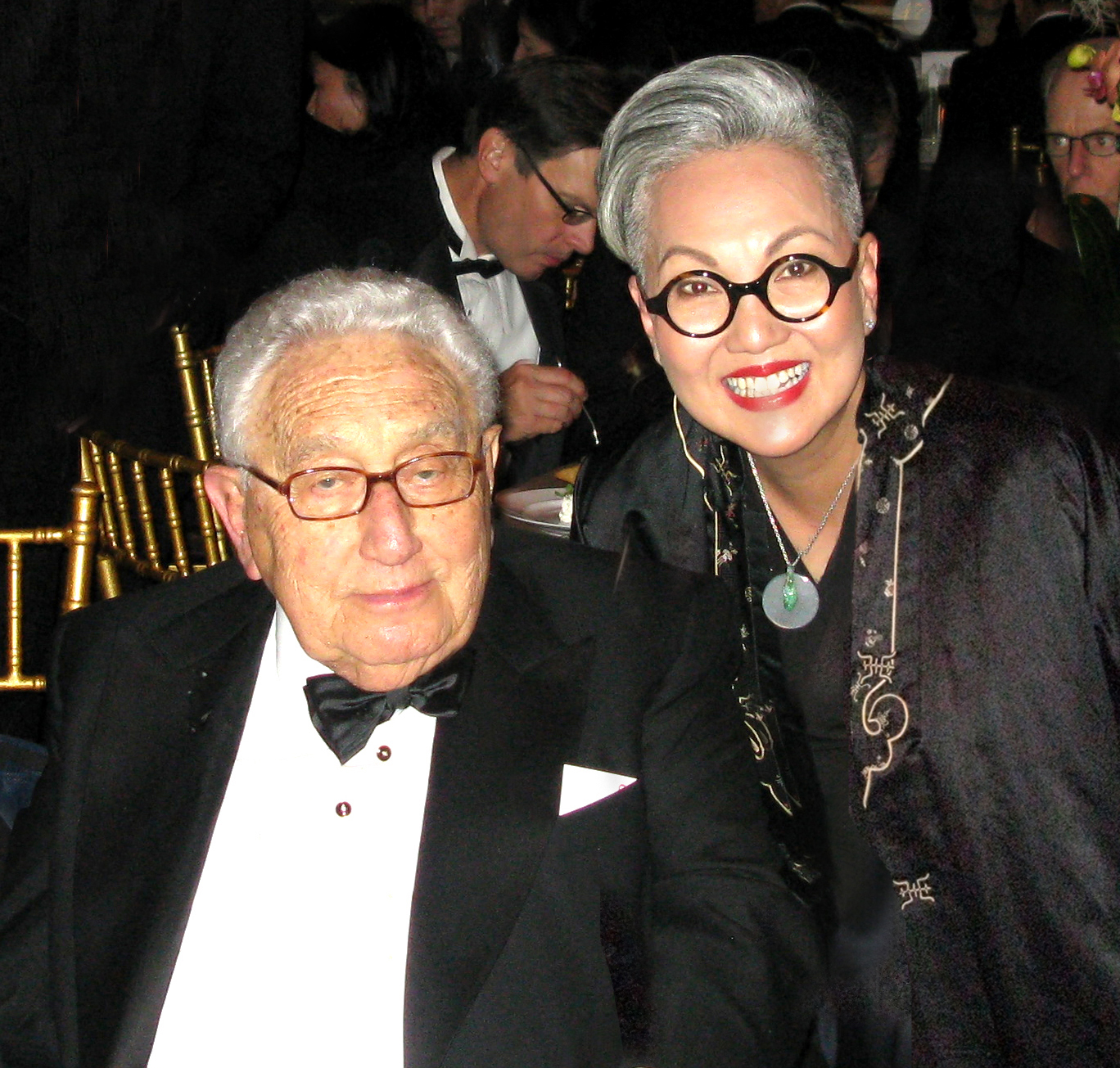
Dr. Henry Kissinger, former U.S. Secretary of State and Mary Ho, President of the China Millennium Council Enjoy Their Camaraderie at the 40th Anniversary Celebration of the first exchange between China and U.S. in 1973 arranged by the National Committee on United States - China Relations
Two leading China – U.S. joint-venture industry leaders were recognized and given tribute who included Alcoa CEO and Chairman Klaus Kleinfeld and IMAX CEO Richard Gelfond, whose modern stewardships in China will through their innovative technologies continue to enrich China’s modern growth and development.
Alcoa is the largest foreign investor in China’s aluminum industry and was named Top Green Company in China. Since 1993, Alcoa Bohai Aluminum Industries Company is China’s largest multinational company in the aluminum industry and invested more than $800 million. Alcoa’s founder Charles Martin Hall in 1928, founded the Harvard-Yenching Institute and supports scholarly studies between western and Asian countries, in particular China.
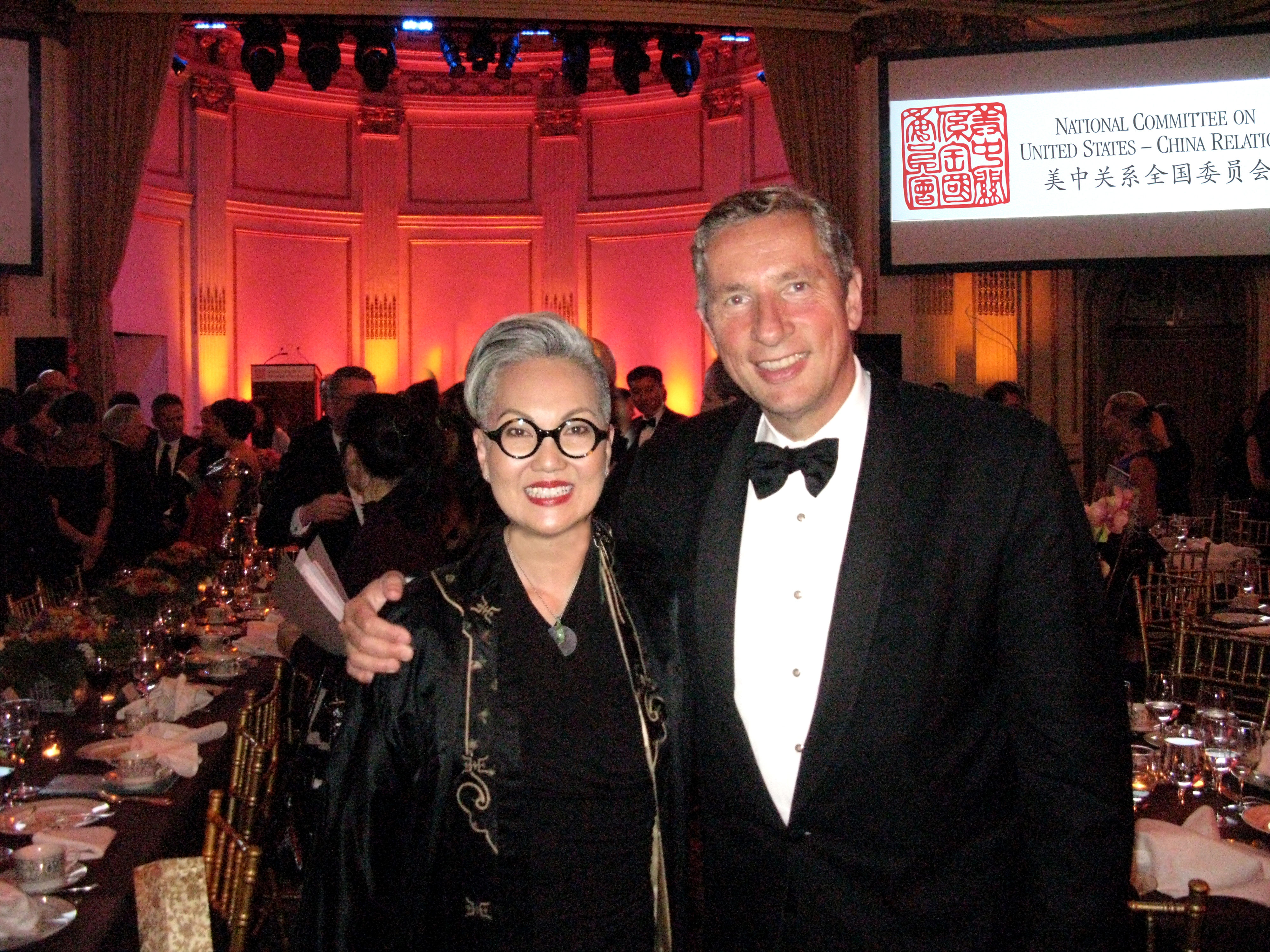
Mary Ho. China Millennium Council President and Klaus Kleinfeld, CEO and Chairman of Alcoa Inc., the Largest Foreign Investor in China's Aluminum Industry Discuss Sustainabiity and Best Practices for China
IMAX is expanding the modern movie-going experience in China and fostering collaboration with China’s film studios, bringing depth to the cultural cinematic interchange. Early on in 2001, IMAX engaged the Chinese movie-goer experience by providing a unique cultural exchange media platform and playing a key leadership role into the development of a large theatre network. IMAX also in conjunction with Chinese film studios brings the best of Chinese cinema within the country and throughout vast audiences globally.
Another renowned U.S. joint-venture pioneer, Walmart China opened its doors in 1996 and introduced to the Chinese the largest retail consumer store ranging from farm-fresh groceries to the emerging e-commerce retail business for their Chinese customers. Presently Walmart operates 396 stores in China and created more than 100,000 direct job opportunities with a vital sourcing presence in China and critical partnerships with 20,000 suppliers throughout China and internationally. Dedicated to serving their local communities, Walmart was awarded as one of the Top 10 Oustanding Corporate Social Responsibility Cases of Chinese Enterprises by Business Value, a leading business journal in China.
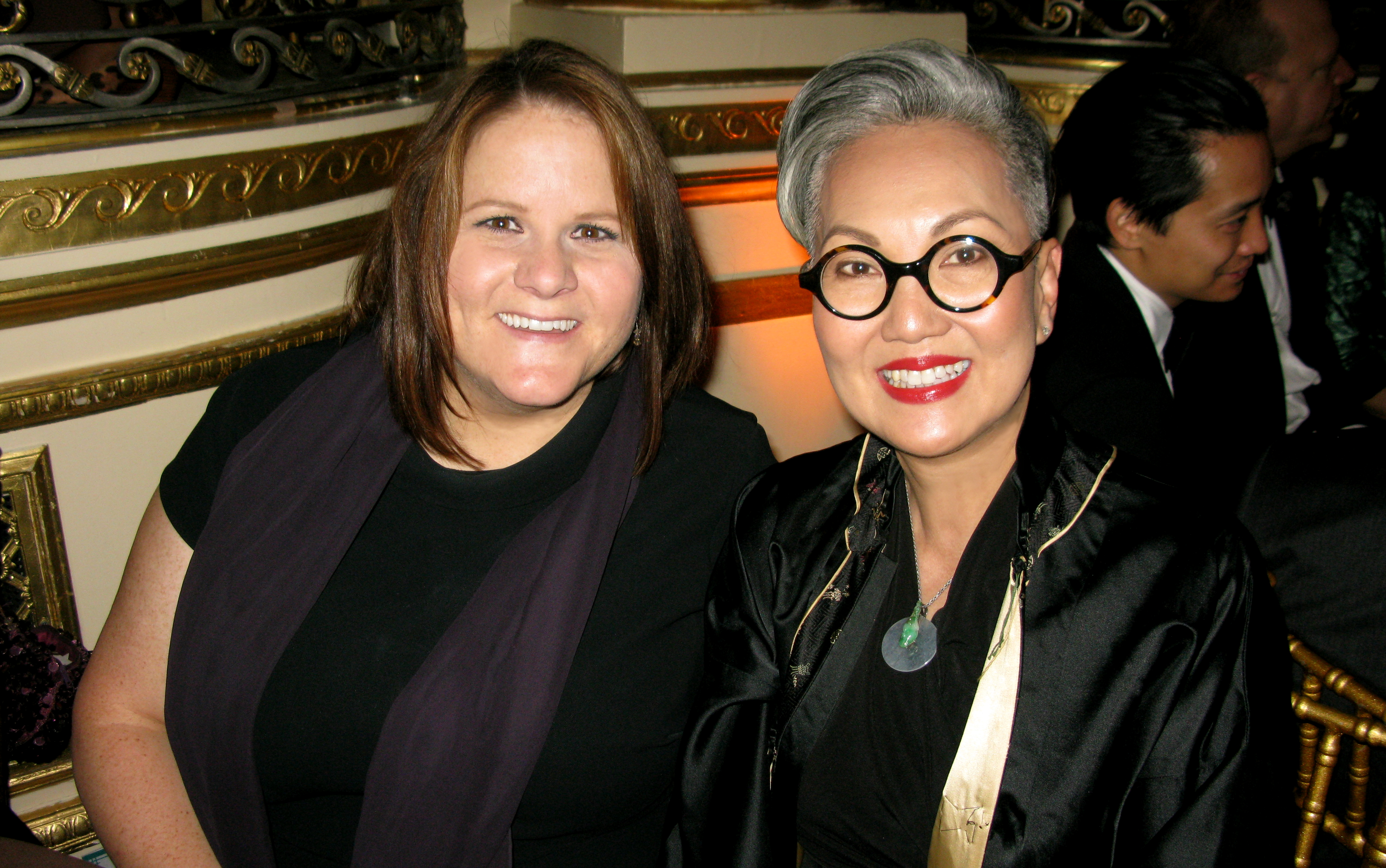
Maggie Sans, Walmart Vice President of International Corporate Affairs and Mary Ho, China Millennium Council President Contemplate Chinese Customers' Preference Shopping On-Line Versus a Tactile Atelier Experience


